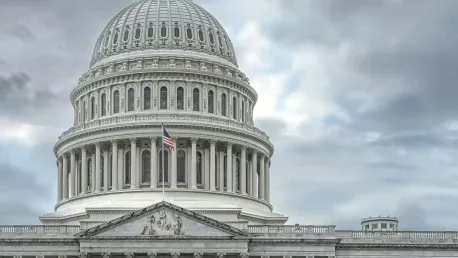In recent months, a significant legislative conflict has brewed in the U.S. House of Representatives regarding the energy efficiency regulations for household appliances set forth by the Biden administration. House Republicans have introduced a series of bills aimed at suspending these energy efficiency standards, arguing that such regulations are exacerbating economic challenges for American consumers amid rising inflation and other financial struggles. This debate encapsulates broader ideological clashes over energy policy, economic regulation, and consumer affordability, highlighting the contrasting viewpoints of both parties in Congress.
Legislative Push Against Energy Regulations
House Republicans have introduced several notable bills to counteract the energy efficiency standards. Among these are HR 7700, also known as the “Stop Unaffordable Dishwasher Standards (SUDS) Act,” and HR 7637, referred to as the “Refrigerator Freedom Act.” Additionally, HR 6192, the “Hands Off Our Home Appliances Act,” seeks to broadly create barriers to the Department of Energy’s (DOE) standard-setting process for all household appliances. These legislative measures are rooted in the belief that the Biden administration’s regulations increase costs and reduce the reliability and affordability of everyday household appliances.The sponsors of these bills argue that stringent energy regulations lead to higher upfront costs for consumers and diminish the performance and lifespan of appliances. By targeting specific appliances like dishwashers and refrigerators, Republicans aim to protect consumers from what they view as impractical standards that put undue financial pressure on American families. Their argument is that reducing or eliminating these regulations will make appliances more affordable and allow greater choice for consumers in the marketplace.HR 7700 and HR 7637, in particular, focus on the immediate economic effects of DOE regulations, highlighting the increased costs associated with compliance. For example, HR 7637 points to the potential for significant upfront cost hikes that could take consumers years to recoup. In essence, these bills reflect a broader ideological opposition to federal regulations that are perceived to hinder economic freedom and inflate costs without delivering commensurate benefits.
Economic Impact and Consumer Costs
A cornerstone of the Republican argument against the Biden administration’s appliance standards is the economic burden these regulations allegedly impose on consumers. Advocates for the proposed bills emphasize that during a period of economic instability and rising inflation, additional costs stemming from energy efficiency standards exacerbate financial woes for many Americans. This stance is grounded in the belief that consumers are already struggling with high prices and economic uncertainty.One of the primary criticisms focuses on the upfront costs associated with energy-efficient appliances. For instance, a DOE analysis indicated that the new mandates for dishwashers could increase purchase costs by approximately 28%. More pointedly, Republicans assert that it could take consumers upwards of 12 years to recoup these additional costs through energy savings, despite the average lifespan of such appliances being 7-12 years. This suggests a discrepancy between the cost incurred and the practical benefits offered, challenging the narrative that energy efficiency always translates to economic savings.Additionally, Republicans argue that the regulations could make appliances less reliable. There is a concern that manufacturers, striving to meet stringent energy standards, might compromise on durability and performance. This could result in more frequent replacements and repairs, undermining the cost-effectiveness argument further. Overall, the economic critique underscores a preference for free-market solutions over federally mandated regulations in addressing energy efficiency and consumer affordability.
Democratic Counterarguments and Support for Standards
On the other side of the debate, Democrats, led by House Minority Whip Katherine Clark, D-Mass., staunchly defend the Biden administration’s energy standards. They argue that the existing DOE regulations are already framed within stringent benchmarks, ensuring that these standards are cost-effective, technologically feasible, and economically justified. This approach, they contend, balances the need for energy conservation with realistic economic considerations.Democrats point out that the efficiency standards are designed to achieve long-term benefits, both economically and environmentally. The emphasis is on reducing energy consumption, leading to lower utility bills for consumers over time, and mitigating environmental impacts such as greenhouse gas emissions. These long-term savings and environmental benefits, they argue, outweigh the initial higher costs of energy-efficient appliances.Moreover, Democrats warn against the potential consequences of dismantling established regulatory processes. They argue that the legislative measures proposed by Republicans would create unnecessary hurdles for the DOE, complicating the standard-setting process that has been developed and refined over decades. This could lead to regulatory uncertainty and hinder progress towards energy efficiency goals. In the Democratic view, maintaining robust efficiency standards is crucial for sustaining technological innovation and promoting environmental sustainability.
Broader Implications and Ideological Divide
In recent months, the U.S. House of Representatives has been embroiled in a major legislative conflict concerning the energy efficiency regulations for household appliances set forth by the Biden administration. House Republicans have proposed a series of bills aimed at suspending these efficiency standards. They argue that such regulations are worsening economic hardships for American consumers, who are already grappling with rising inflation and other financial pressures. The core of this debate goes beyond just appliance standards; it reflects deeper ideological divisions over energy policy, economic regulation, and consumer affordability. On one side, Republicans assert that rolling back these standards is essential to ease economic pressures. On the other side, Biden administration supporters maintain that energy efficiency standards are necessary for long-term sustainability and economic health. This issue highlights the contrasting worldviews of the two parties in Congress, emphasizing the broader clash over how best to balance economic concerns with environmental and energy considerations.









